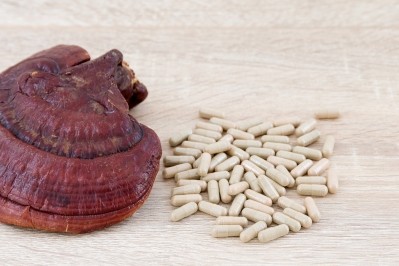Brewer’s yeast extract may help recovery from challenging exercise: Study

Data published in Nutrients indicated that 250 mg of the yeast beta-glucan for 13 days led to significant reductions in markers of inflammation after a heated treadmill exercise, specifically for macrophage inflammatory protein 1beta (MIP-1beta), interleukin 8 (IL-8), monocyte chemoattractment protein 1 (MCP-1), and tumor necrosis factor-alpha (TNF-alpha).
In addition, mood state analysis indicated improvements in vigor and reductions in anger.
“We found that beta-glucan positively influences inflammation status, parameters of muscle damage and psychological parameters,” Dr Ralf Jaeger from Wisconsin-based Increnovo and a co-author on the paper, told NutraIngredients-USA.
“Brewer's yeast beta-glucan administration significantly reduced MCP-1, and pro-inflammatory cytokines IL-8 and MIP1beta, and reduced Myoglobin, a marker of muscle damage, indicating a faster recovery from exercise.”
The study used Yestimun, a 1,3/1,6 beta-glucan ingredient produced by German firm Leiber GmbH from brewer’s yeast. Leiber funded the study. In the US, the ingredient has self-affirmed GRAS status and is exclusively distributed by IMCD.
Study details
The researchers recruited healthy, active men and women to participate in their randomized, double-blind, placebo-controlled, cross-over study. Thirty one participants were randomly assigned to receive either the yeast beat-glucan (250 mg per day) or placebo for 13 days, and then they had to run on a treadmill at 55% peak aerobic capacity (VO2Peak) under hot (99 °F = 37.2 °C) and humid (45.2%) conditions.
Dr Jaeger explained to us that strenuous exercise increases the release of lysosomal enzymes and reactive oxygen species (ROS) accompanied by the production of cytokines, with the purpose of degradation and removal of cellular debris and damaged tissue.
In addition, MCP-1 levels increase promoting activation and cell extravasation to the exercise-induced injured tissues by exercise, and monocytes are migrating to a site of inflammation due to the local production of MPC-1, he added.
The study showed that Yestimun consumption was association with significantly lower MIP-1beta, IL-8, and MCP-1 levels, compared to placebo, while there was a trend for improvements in TNF-alpha.
Furthermore, myoglobin levels were lowed in the yeast beta-glucan group, compared to the baseline levels, while levels in the placebo group remained unchanged.
“[T]he downregulation of MCP-1β observed in [yeast beta-glucan] after heated treadmill exercise, as well as the limited release of IL-8, might be an indication of the muscle healing process associated with decreased myoglobin levels in this group 72 h after exercise stress,” wrote the researchers.
“Overall, these outcomes are indicative of robust physiological stress secondary to the exercise and heat exposure and a potential ability of [yeast beta-glucan] to help recovery of myoglobin levels more rapidly than [placebo], but more research is needed to identify the potential for this outcome.”
The study was performed by scientists from Towson University (USA), Lindenwood University (USA), Texas Tech University (USA), University of Lodz (Poland), Increnovo LLC (USA), Auburn University (USA), and the Mayo Clinic Health System.
Source: Nutrients
2020, 12(4), 1144; doi: 10.3390/nu12041144
“Yeast Beta-Glucan Supplementation Downregulates Markers of Systemic Inflammation after Heated Treadmill Exercise”
Authors: H.A. Zabriskie et al.














